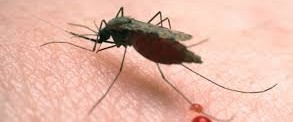Sitali L, Mwenda MC, Miller JM, Bridges DJ, Hawela MB, Chizema-Kawesha E, Chipeta J & Lindtjørn B. En-route to the ‘elimination’ of genotypic chloroquine resistance in Western and Southern Zambia, 14 years after chloroquine withdrawal. Malar J. 2019;18(1):391. Epub 2019/12/05.
Background Anti-malarial resistance is, and continues to be a significant challenge in the fight against malaria and a threat to achieving malaria elimination. In Zambia, chloroquine (CQ), a safe, affordable and well-tolerated drug, was removed from use in 2003 due to high levels of resistance evidenced with treatment failure. This study sought to investigate the prevalence of chloroquine resistance markers in Southern and Western Provinces of Zambia 14 years after the withdrawal of CQ.
Methods Data from a cross-sectional, all-age household survey, conducted during the peak malaria transmission season (April–May 2017) was analysed. During the all-age survey, socio-demographic information and coverage of malaria interventions were collected. Consenting individuals were tested for malaria with a rapid diagnostic test and a spot of blood collected on filter paper to create a dried blood spot (DBS). Photo-induced electronic transfer–polymerase chain reaction (PET–PCR) was used to analyse the DBS for the presence of all four malaria species. Plasmodium falciparum positive samples were analysed by high resolution melt (HRM) PCR to detect the presence of genotypic markers of drug resistance in the P. falciparum chloroquine resistance transporter (Pfcrt) and P. falciparum multi-drug resistance (Pfmdr) genes.
Results A total of 181 P. falciparum positive samples were examined for pfcrt K76T and MDR N86. Of the 181 samples 155 successfully amplified for Pfcrt and 145 for Pfmdr N86. The overall prevalence of CQ drug-resistant parasites was 1.9% (3/155), with no significant difference between the two provinces. No N86Y/F mutations in the Pfmdr gene were observed in any of the sample.
Conclusion This study reveals the return of CQ sensitive parasites in Southern and Western Provinces of Zambia 14 years after its withdrawal. Surveillance of molecular resistant markers for anti-malarials should be included in the Malaria Elimination Programme so that resistance is monitored country wide.
